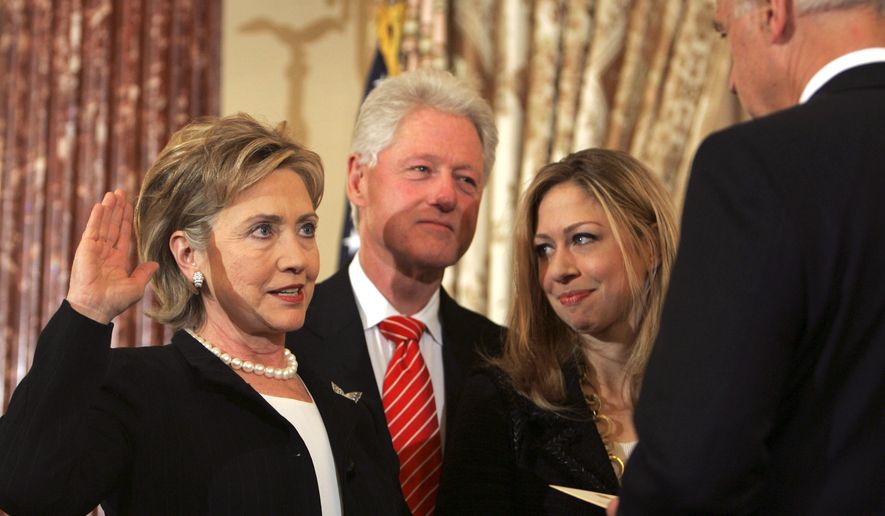Women get less encouragement and have lower self-confidence about getting involved in electoral politics, leaving them with an ambition gap that helps explain why women make up fewer than a fifth of the members of Congress, according to a new study.
When given the same push, women are just as likely as men to run for office. But the study concluded women don’t get that encouragement from adults, and they are less likely to take part in competitive activities such as sports or debate club, which can be indicators of a political future.
Having high-profile elected women can also help, researchers found in the study released earlier this month.
“If we want to close this gap, concrete steps need to be taken,” said Jennifer Lawless, a co-author of the study who also serves as the director of the Women & Politics Institute and a professor at American University. “One of the most obvious ones has to do with encouragement or recruitment. We’ve found that when young people are encouraged to think about running by parents, other family members, teachers, mentors [and] coaches, they are far more likely to consider doing it.”
The study, which appeared in the August issue of the American Political Science Review, polled more than 4,000 high school and college students and asked whether they went to political activities with their parents; whether they talked about politics; and whether a family member had encouraged them to think about a run for political office.
While 48 percent of men said they had considered a career in politics, just 35 percent of women said the same. Men were also twice as likely as women to say they thought about running for office “many times.”
SEE ALSO: Rush Limbaugh: ‘Boil it down,’ and youth only like Hillary Clinton for her gender
Ms. Lawless, working with Loyola Marymount University Professor Richard Fox, said they found the ambition gap was small in high school but widens in college, where men are more likely to major in political science, spend time on media websites, compete in a sport and join a political club like the College Democrats or College Republicans.
“If we can get more young women to take political science classes or participate in mock trial, that’s going to ensure they get the kind of exposure that’s going to propel thoughts of running,” she said.
Young women also have fewer female politicians to look up to as role models, said Lara Brown, an associate professor at the Graduate School of Political Management at George Washington University, who was not affiliated with this study.
“I think there’s no doubt that in order to aspire to it, one has to see it,” she said. “Certainly if you look at the uptick in Republican women becoming more engaged and running for more offices, certainly [2008 GOP vice presidential nominee] Sarah Palin’s nomination had something to do with that.”
But Ms. Lawless said there is both potential and peril in a Hillary Rodham Clinton White House bid.
“If Hillary Clinton runs and wins, I think a lot of people will say, ’Oh, the political system is open.’ Of course, that belies the fact that the overwhelming majority of elected officials are still men,” she said. “If she loses, I think that could send a pretty bad message to people too. They’ll look at her [and think], ’If she can’t win, how can I possibly win?’”
While women may be less likely to run than their male counterparts, once they make the decision to enter a political career, they often match their male opponents in votes and fundraising, Ms. Lawless said, suggesting that women could succeed politically if they took the first step to pursue the opportunity to serve.
“It’s not that voters won’t vote for women, it’s that women aren’t running in the first place,” she said.
Even then, she said a majority of both men and women surveyed had little interest in entering politics. Ms. Lawless said she blames the current political system, which has made “navigating the day-to-day intricacies of D.C. so undesirable that young people write it off immediately.”
• Jacqueline Klimas can be reached at jklimas@washingtontimes.com.




Please read our comment policy before commenting.